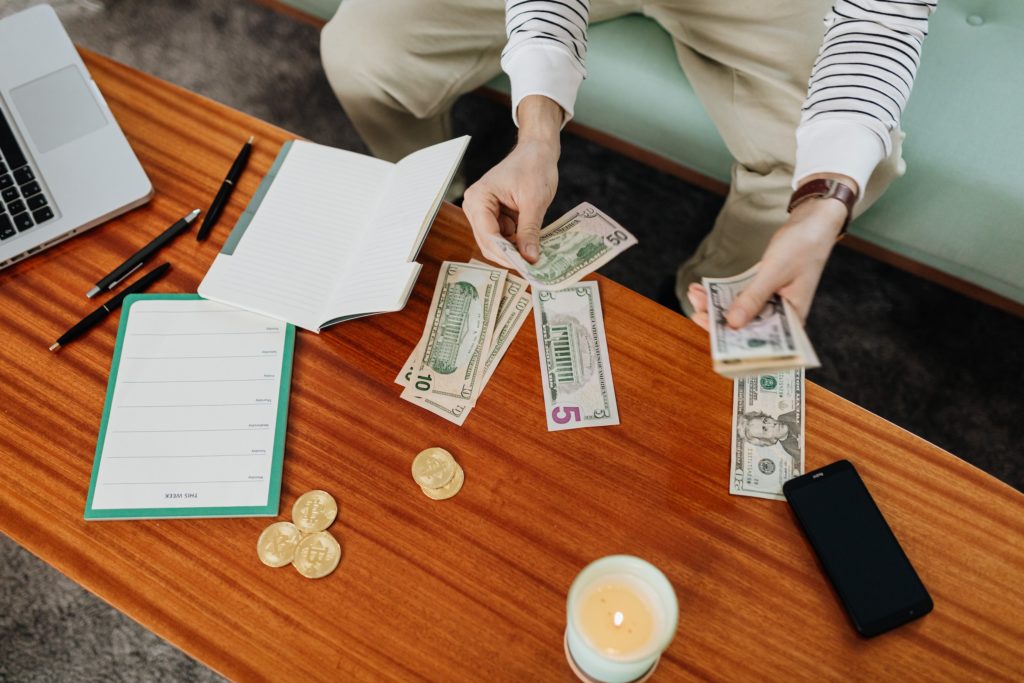If you and your spouse have finally decided that you are better off apart than together, you probably have a lot on your mind as you’re preparing for divorce and living single. Finding a place to live, establishing new routines, and learning how to manage household tasks by yourself can feel overwhelming for the first year or two after your divorce.
Another aspect of your future you can’t afford to ignore: your post-divorce finances. Here in Maine, many people are shocked by how difficult it can be to maintain their lifestyle on one income after a Maine divorce. Similarly, divorcees all around the country lack the preparation they need to financially thrive after ending their marriages.
While creating and sticking to a post divorce budget isn’t always easy, the time you spend planning now can give financial stability to your future.
Here are some strategies that can help you establish a workable budget and protect your finances once you’re living on your own:
Accept that your spending power will change in the short-term.
During their married years, many people become used to having extra money to buy things they want – spending money on hobbies, self-care, and other purchases feels “normal.”
Once the divorce papers are signed, though, your spending power can change significantly. Although you might have the same income as before, you’ll encounter a wide range of post-divorce expenses that can feel surprising – and daunting.
You may be paying a lease on an apartment or a mortgage payment for the first time since you said “I do.” Utility payments, groceries, and credit card bills, as well as child support and alimony payments, can all eat at your income. After all of the bills are paid, there might be much less money left than you’re used to.
After divorce, people often realize that their spending power is going to change significantly and become overly emotional about the change. Unfortunately, no amount of anger or frustration can shield you from this change. By accepting that you might have less “mad money” for a while, or that you’re going to need to watch expenses carefully to stay afloat, you can free a significant amount of energy and “mind space” to cultivate a post-divorce life you can enjoy.
Consider all of your options for “the house.”
Which spouse gains ownership of the house shared during marriage, or who receives the proceeds if the home is sold, can have a significant impact on both partners’ post-divorce finances.
In many cases, one partner wants to keep the house, either for sentimental reasons, or because they don’t want the other partner to have it. If you’re planning to keep the house, though, make sure that you have sufficient income to handle the mortgage payments, property taxes, maintenance and updating costs, and other expenses that come with owning a home.
Maintenance costs can be especially surprising for divorcees who take possession of their marital homes. Chances are, the stress and conflict in your marriage have been front-of-mind for a long time – and that means tasks like home maintenance and upgrades fall by the wayside. All of the “deferred maintenance” can create substantial expenses after you finally have the home to yourself.
For some, keeping the house in a divorce agreement is the right thing to do – they have the income and financial security to weather the additional costs. If that approach doesn’t make financial sense, though, there are other options to explore:
- You and your spouse can choose to sell the house. This doesn’t necessarily mean that you and your former partner will both get 50% of the proceeds, though. In Maine and many other states, proceeds from the sale of the marital home are subject to equitable distribution. If you will likely incur larger expenses in your post-divorce life than your spouse, you will likely receive a greater share of the proceeds.
- You can rent the home from your former spouse (or vice versa). This allows you to remain in the home without taking on more expenses than you can afford.
- You can rent the home to a third party. In this scenario, both you and your spouse would retain ownership of the home and mutually select tenants to live in the property. You and your spouse would then agree on how to allocate the income from rental payments.
- You can forfeit the property in foreclosure or file for bankruptcy protection. While this is a “last resort,” this option can offer freedom to former spouses when the mortgage is “underwater” or payments are behind.
Practice effective spending habits.
Financially thriving after divorce involves reviewing all of your current spending habits, and replacing the ones that don’t serve you and your goals. Use home budgeting or accounting software to track spending and obtain reports – you can automate the entire process by connecting the software to your online banking portal.
You’ll identify spending trends – that $9 mocha you get on the way to work on Fridays, for example – that could make post-divorce financial stability difficult.
If you’re not sure how to choose and implement effective spending habits after your divorce, or you just want to make sure you start your new single life on solid financial ground, a Certified Divorce Financial Analyst (CDFA) can help. These professionals work to ensure that your post-divorce life is as financially comfortable as possible, and that your goals as a newly single person are within your reach.





